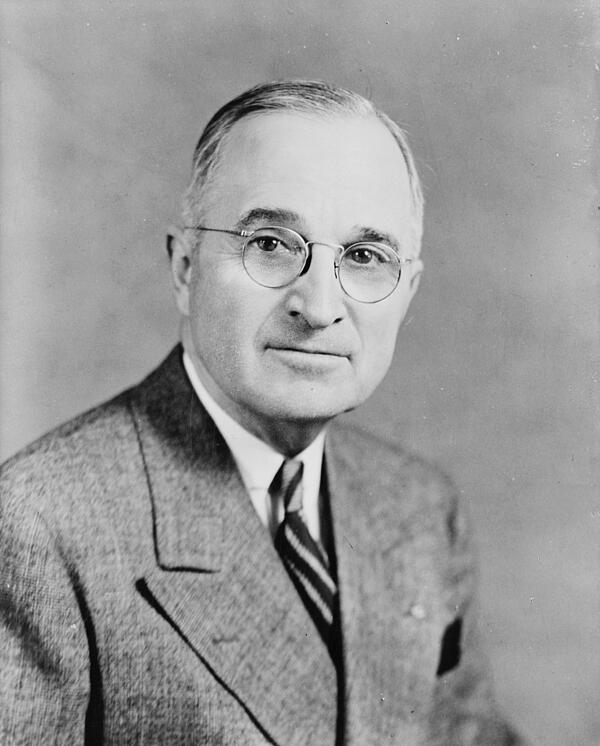The Truman Doctrine
On 12 March 1947, Harry Truman, the President of the United States, announced a policy that is now known as the Truman Doctrine. The Doctrine stated that the United States of America would intervene in support of a country threatened by a takeover by an armed minority. Truman said that “it must be the policy of the United States to support free peoples who are resisting attempted subjugation by armed minorities or by outside pressures.” No specific aggressors were named, but the policy was clearly aimed at the Soviet Union.
At the time of the war conferences, Stalin had promised to allow free elections in Eastern Europe. However, after the end of World War Two he reneged on this promise. The Communists quickly took power in Poland, Bulgaria and Romania.
The only free election in Eastern Europe was held in Hungary in November 1945. The Communist Party in Hungary only managed to win a small share of the vote. However, by 1950 any pretense of democracy had been dropped and the Communist Party ruled in Hungary.
Yugoslavia was the anomaly in Eastern Europe. The country was led by Josip Broz Tito. He was communist but was not under the control of Stalin.

In 1946 civil war broke out in Greece between the Greek government and the Greek communists. Britain initially support the Greek government, whilst Yugoslavia backed the Greek communists.
However, on 31 March 1947, the British Government announced that it would no longer provide economic or military help to the Greek government.
The British withdrawal triggered the development of the Truman Doctrine. The military position of Greece was highly sensitive and Truman was afraid the country would fall to the Communists. The USSR’s Black Sea Fleet at the time had to use the narrow waterway through Turkey (the Dardanelles) to access the Mediterranean Sea. Its movements were therefore moderately easy to monitor because listening devices were positioned on the seabed. However, if the USSR had an ally on the Mediterranean Sea where they could build a naval base, they would no longer be restricted in this way. Truman also feared that if Greece fell to the communists, Turkey might follow suit, which could cause political unrest in the Middle East.
So Truman’s policy was of a strategic as well as ideological nature. Truman wanted congress to cough up $400 million to support the Greek and Turkish governments. Congress agreed to do this. However, the deployment of US military forces to Greece was not supported.
The Truman Doctrine sent a clear message to the word, and specifically, the Soviet Union. The historically isolationist streak in American foreign policy (which had emerged strongly after World War One) had been superseded by a more muscular approach to international relations. According to Truman, America was prepared to actively engage in international affairs in order to “assist free peoples to work out their own destinies in their own way”.
MLA Citation/Reference
"The Truman Doctrine". HistoryLearning.com. 2026. Web.
